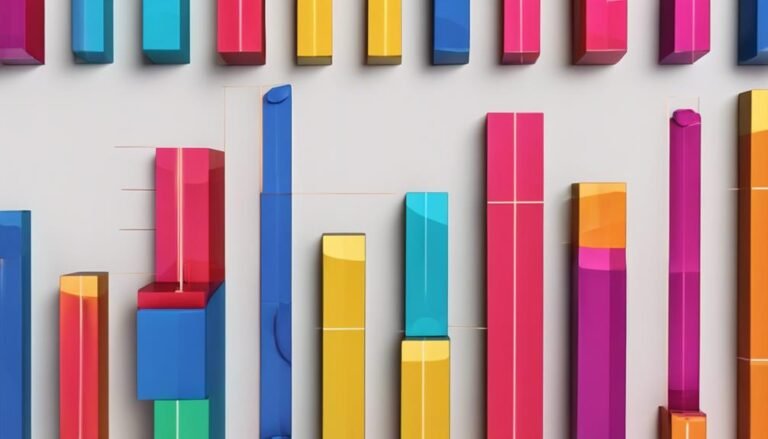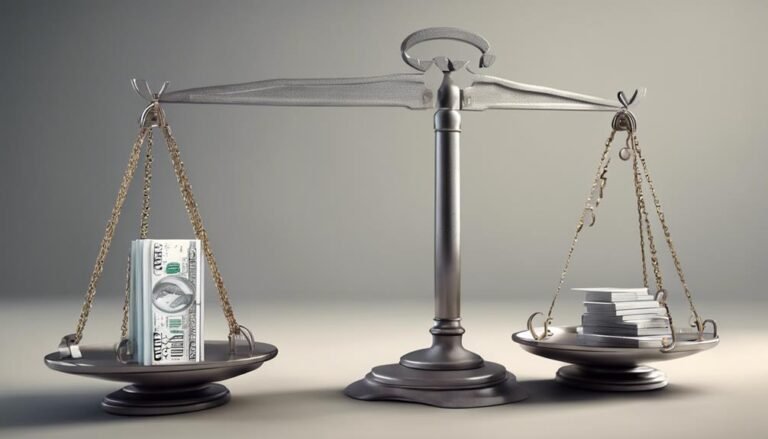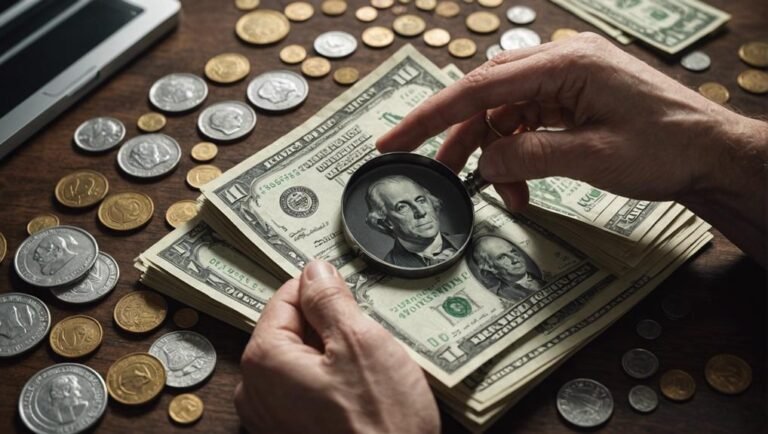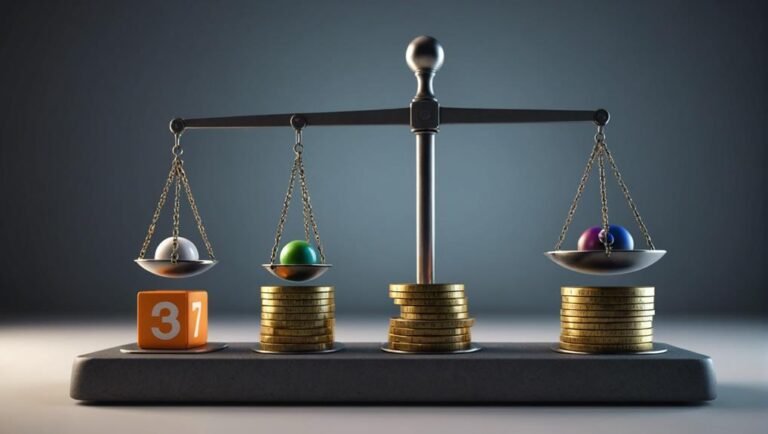Black Friday: What It Means to Economists and to You
Black Friday plays a significant role in the economy by driving consumer spending, influencing retail performance, and reflecting economic health through sales figures. For economists, it provides insights into consumer confidence, market demand, and pricing strategies. Retailers strategically offer discounts to attract customers, using tactics like doorbusters and limited-time offers to boost sales. Understanding the historical context and evolution of Black Friday helps grasp changing consumer dynamics. As an individual, setting a budget, comparing prices, and prioritizing purchases can lead to informed decisions. The implications for economists and consumers extend beyond discounts and sales, shaping economic trends and personal finance strategies.
Key Takeaways
- Black Friday sales indicate consumer confidence and economic health.
- Retailers strategically plan promotions to drive spending and boost performance.
- Consumer behavior on Black Friday influences market trends and stock prices.
- Historical evolution from a traditional sales day to a major retail event.
- Personal finance tips: set budgets, compare prices, and prioritize purchases for savings.
Significance of Black Friday Deals
Black Friday deals play a significant role in driving consumer spending and influencing retail performance during the holiday shopping season. Retailers strategically offer discounts to attract customers, leading to shifts in spending patterns.
The economic impact of Black Friday deals is profound, with sales figures serving as indicators of overall economic health and consumer confidence. Lower sales on this day can signal slower economic growth, while robust spending may suggest a more positive outlook.
Consumer Behavior and Economic Trends
Consumer spending patterns and economic trends are intricately linked, reflecting shifts in market demand and overall financial stability. Behavioral economics plays an essential role in understanding how consumers behave during events like Black Friday, influencing market trends and economic indicators. Analyzing consumer behavior through data on spending patterns provides insights into the health of the economy and future trends. Below is a table highlighting key aspects of consumer behavior and economic trends during Black Friday:
| Consumer Behavior | Economic Trends |
|---|---|
| Increased spending on discounted items | Indicates consumer confidence |
| Long queues and early store openings | Reflects market demand |
| Impulse purchases due to FOMO | Boosts retail sales |
| Comparison shopping for best deals | Influences pricing strategies |
| Online shopping gaining popularity | Reflects digital market trends |
Implications for Retailers and Markets
With meticulous planning and strategic sales approaches, retailers navigate the intricate landscape of market dynamics during the post-Thanksgiving shopping frenzy.
- Retail strategies:
- Retailers carefully curate their Black Friday promotions to attract customers and maximize sales.
- Doorbuster deals are strategically placed to draw in crowds and create a sense of urgency.
- Pricing tactics, such as limited-time offers and discounts, are used to drive consumer spending.
- Market impact:
- Black Friday sales figures can have a substantial impact on a retailer's overall performance for the year.
- Market trends and consumer behavior during this period can influence stock prices and investor confidence.
- The success or failure of Black Friday sales can have ripple effects on the broader retail industry and economy.
Historical Context and Evolution
The historical context and evolution of Black Friday reveal a significant shift in consumer behavior and retail strategies over time. The origins of Black Friday can be traced back to Philadelphia, where the term was initially used by police officers to describe the chaotic post-Thanksgiving shopping rush.
Over the years, Black Friday has evolved from a traditional sales day to a major retail event that sets the tone for the holiday shopping season. Retailers have strategically transformed their approach to Black Friday, planning meticulously to attract customers with doorbusters and exclusive deals.
This shift reflects the changing dynamics of consumer demand and the competitive nature of the retail industry, highlighting the importance of adapting to meet evolving market trends.
Personal Finance and Shopping Tips
Analyzing personal finance habits and implementing strategic shopping techniques can greatly impact one's overall financial well-being during the holiday season. When approaching Black Friday and holiday shopping, consider the following:
- Budget Planning: Set a clear budget for your holiday spending to avoid overspending and financial strain.
- Saving Strategies: Look for deals, compare prices, and consider using cashback or reward programs to maximize savings.
- Prioritize Purchases: Identify the most important items on your shopping list and focus on securing those first to prevent impulse buys.
Conclusion
In summary, Black Friday acts as a barometer of consumer sentiment and economic vitality, offering valuable insights into market dynamics and retail strategies.
Like a compass guiding both businesses and consumers through the holiday shopping season, this annual event plays an essential role in shaping the retail landscape and influencing economic indicators.
By understanding the significance of Black Friday deals and analyzing consumer behavior trends, individuals can navigate the complexities of the market with greater clarity and purpose.







